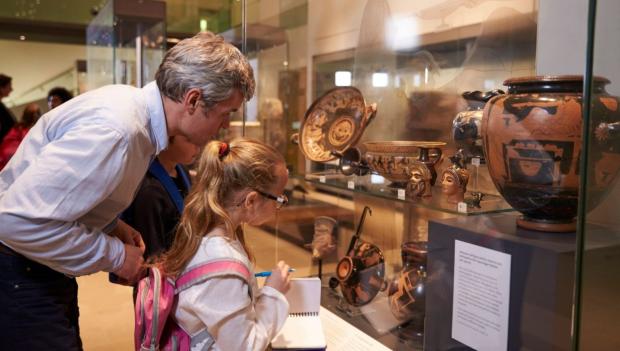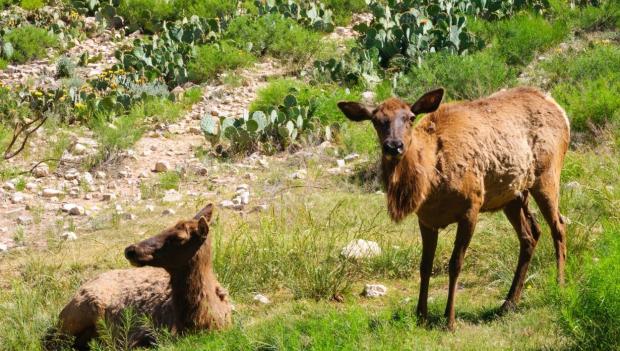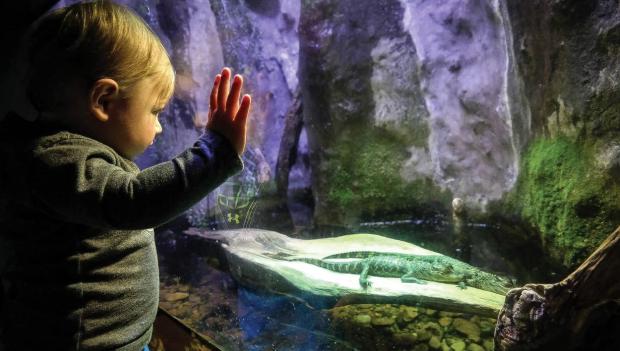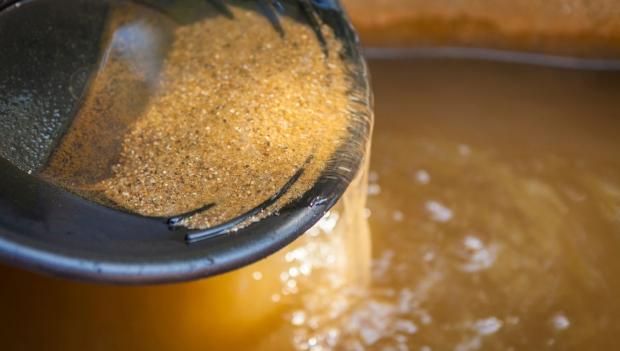10 Great State Park Museums

It’s tough to improve on a day spent in nature, hiking, biking, paddling and just hanging around your campground. You may be surprised how much richer and more interesting your outdoor adventures become when you carve out some time in your schedule to learn about native wildlife, ecosystems and the people and events that shaped the landscape that surrounds you.
While touring state park living history museums, historic sites, nature centers and zoos, you get the inside scoop on what makes a park unique. You’ll step into the world of the explorers and settlers who came before you, and you may even get to experience first-hand what life was like for them in the primitive and remote wilderness. Armed with a deeper knowledge of the cultural history, flora and fauna, you’ll observe plants, animals and natural attractions that you might miss otherwise.
Beat the heat with a visit to 10 state park museums that bring nature to life.
1. Grandfather Mountain Nature Museum
Grandfather Mountain State Park, Linville, North Carolina
Before setting out on the hiking trails of this mile-high United Nations Biosphere Reserve, get to know the plants, animals and geologic forces behind one of the most biologically diverse areas in the southeast. Explore the collection of over 350 gems and minerals, including the largest amethyst found in North America. There’s a scale model of the mountain and profiles of early explorers like Daniel Boone. Touch screens describe the weather-related science behind the Earth’s climate, and wax models of the wildflowers, berries and mushrooms help you identify plants you’ll find on the trail. Delve deeper into the history and ecology of Appalachia with a stop at the museum theater, then visit black bears, cougars and otters in the outdoor wildlife habitats.
2. Collier Logging Museum
Collier Memorial State Park, Chiloquin, Oregon
The ponderosa pine forest at the confluence of Spring Creek and the Williamson River is the setting for an outdoor display of massive machinery that powered the Pacific Northwest logging industry since 1880. The antique equipment, along with several modern pieces, show the innovation that was required to haul massive stands of timber out of the remote backcountry. You’ll learn about the vital role railroads played in logging, and tour a historic log cabin village for a peek into the rough and rugged conditions loggers and their families had to endure to make a living.
3. Living Desert Zoo & Gardens
Living Desert Zoo & Gardens State Park, Carlsbad, New Mexico
Get a close-up look at the plants and animals that make their home in the Chihuahuan Desert. From flowering cacti, yucca and agave, to snakes, bison, javelinas and black bears, over 40 exhibits prove that deserts are teeming with life. While inside you’ll learn about the native Mescalero Apaches and the oil-rich Permian Basin surrounding you. Afterward, you can turn the kids loose at touch tables stocked with rocks, minerals, antlers and more learning opportunities.

Recommended: 15 Natural Attractions You Have to See to Believe
4. Washington-on-the-Brazos
Washington-on-the-Brazos State Historic Site, Washington, Texas
Tour the home of the last president of the Republic of Texas, a living history museum where you can see how cotton is harvested and find out what life was like on the Texas frontier during the mid-1800s. Picnic on the Brazos River, then watch costumed interpreters picking and harvesting cotton and farming the land just as settlers did at a time when Texas was a sovereign nation.
5. Falls of the Ohio Interpretive Center
Falls of the Ohio State Park, Clarksville, Indiana
You might not give this park’s sandy shoals a second glance until you learn their 60 million-year-old history. Interactive exhibits bring the park’s exposed Devonian fossil bed, the largest in the world, to life in a way that captivates even the youngest visitors. Stand on the terrace for views of the Ohio River and Louisville skyline in the distance, then let the kids follow museum mascot Great Blue Heron for fossil rubbings and mammoth puzzles. Find out how Native Americans and Europeans settled in the area, and what impact Lewis & Clark’s Corps of Discovery had on the region in the early 1800s.
6. Museum of Natural Sciences
LeFleur’s Bluff State Park, Jackson, Mississippi
Acres of park land and nature trails complement museum exhibits and a 100,000-gallon aquarium for an immersive indoor/outdoor nature experience. Hiking trails lead along the Pearl River to Mayes Lake, where you can fish off the pier for some of the same species you’ll learn about at the aquarium. Back in the museum, walk through “The Swamp,” a 1,700-square-foot greenhouse, watch over 200 native fish species at feeding time, and examine fossils of a Mosasaurus and giant sloth. Young kids can spend hours in the preschool room, with a giant treehouse, puppets, story time and finger painting.

Recommended: Ultimate Guide to Family Summer Events
7. Cedar Key Museum
Cedar Key Museum State Park, Cedar Key, Florida
Follow in the footsteps of famous naturalist John Muir, who walked across the post-Civil War south from Indiana to Florida for his first glimpse of the Gulf of Mexico from Cedar Key. Dioramas show life in this once-thriving port city and railroad hub, and a tour of the Whitman Home shows life on the Gulf coast in the early 1900s. Don’t miss the native seashell collection and displays of Native American artifacts.
8. Edge of the Cedars Museum
Edge of the Cedars State Park, Blanding, Utah
Explore an authentic Puebloan village dating back to AD 1075 and view the largest collection of Anasazi pottery in the Four Corners region. Descend a ladder into a 1,000-year-old kiva, a ceremonial chamber used for religious rituals and political meetings. Watch curators at work restoring ancient artifacts and learn how citizen scientists report their archeological finds. Murals at the Chaco-era great house bring daily activities to life in this former farming community and show how the artifacts on display in the museum were used in Puebloan culture.
9. Dahlonega Gold Museum
Dahlonega Gold Museum Historic Site, Dahlonega, Georgia
Visit one of the state’s oldest standing courthouse buildings to see rare coins, primitive mining equipment and a five-ounce nugget of gold, all from America’s first gold rush. Twenty years before prospectors flocked to the west coast, miners poured into the Cherokee lands of northern Georgia to mine $6 million in gold between 1838 and 1861. Watch the museum’s movie on life in the mining camps and tour exhibits to learn how the gold discovery forever changed Native American life.

10. Southwest Virginia Museum
Southwest Virginia Museum Historical State Park, Big Stone Gap, Virginia
The stately late-1800s homestead of the private secretary to President Calvin Coolidge is a tribute to the local materials and craftsmanship of the southern Appalachian region. Native sandstone and limestone form the exterior of the mansion, with hand-carved red oak accenting the interior. Take a self-guided tour to experience the remote hill country that was, in the late 1800s, thought to be the “Pittsburgh of the South” for rich iron ore and coal deposits found in the area. While the home tour is designed for families with older children, young kids will love the gardens around the museum.
Are you ready for an outdoor adventure? Plan your camping trip!